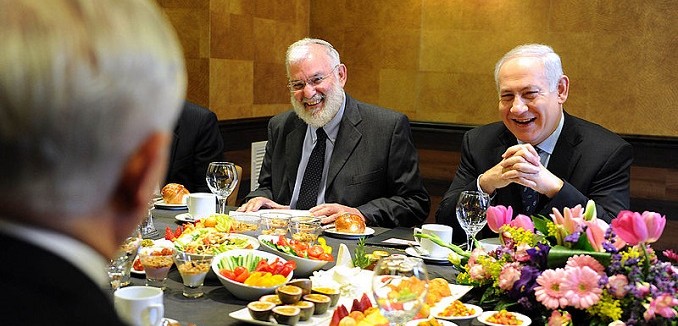Conflicting reports surrounding the recent resignation of Israeli national security adviser Major-General (res) Yaacov Amidror are calling attention to the complicated economic and geopolitical calculations the country must make in managing its vast newly-found energy reserves.
Amidror is one of Prime Minister Netanyahu’s closest advisers. During his term he has been involved in most of the major deliberations and decisions regarding Israel’s foreign and security policies. At the moment, he is negotiating with Turkish officials to reach an understanding which would facilitate reconciliation between the two countries.
He is now set leave office in November, 2013. Ha’aretz reported this week that his decision derived from an official investigation into accusations that Amidror abused his power and acted in a manner which could have led him into a conflict of interests.
The newspaper report says that Israel’s Attorney General Yehuda Weinstein examined a complaint regarding the possibility that Amidror advised the cabinet on matters of energy even though he was barred from doing so. Before Amidror was appointed as the head of Israel’s National Security Council, he had worked as a private consultant for the U.S. Nobel Energy Corporation which owns, together with Israeli partners, gas fields in the Mediterranean.
But Amidror claims that upon taking the office two years ago, he agreed with the Prime Minister that he would leave by November, 2013. Liran Dan, the media adviser of the Prime Minister’s office, told The Tower that Amidror denies his decision to leave office had anything to do with the Attorney General’s inquiry. Dan added that Amidror intends to sue Ha’aretz for libel.
Israel will start producing gas in a matter of a year, and within two years it will be self-sufficient. The gas bonanza has been shadowed by a heated debate between the Israeli public and the companies’ American and Israeli shareholders. The companies wanted to increase the share of the gas to be exported to neighbors such as Jordan, Turkey, and the Palestinian Authority. The price of exported gas will be higher than the price for the local market. The general public and environmental groups argue on the other hand, that most of the gas has to be allocated to the Israeli market nees.
Earlier this week the Israeli cabinet reached a compromise: only 40% of the produced gas will be exported and the rest will be sold to Israeli customers – industries, Israel electrical corporation, and private households.
[Photo: Prokurator11 / Wiki Commons]




